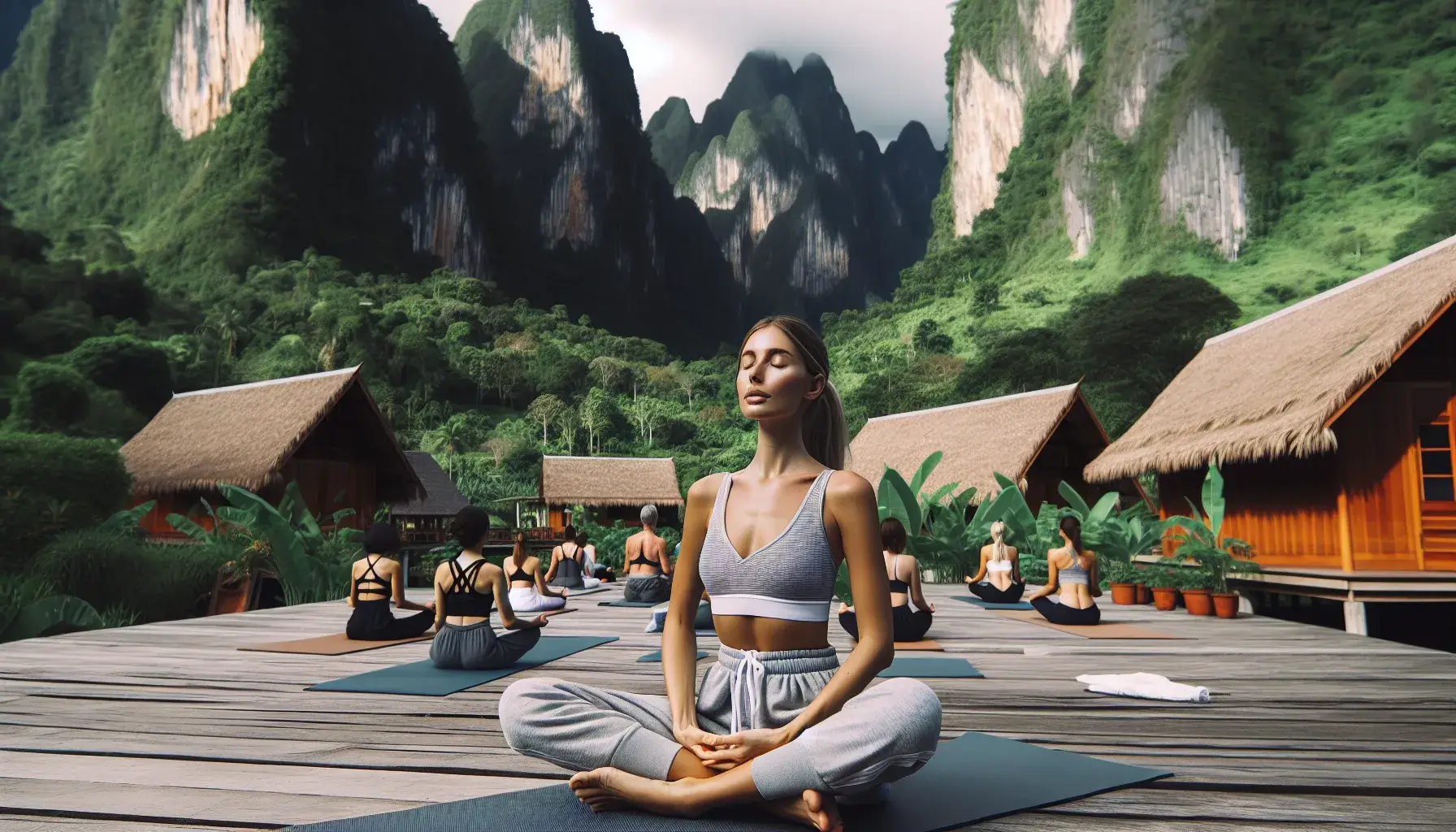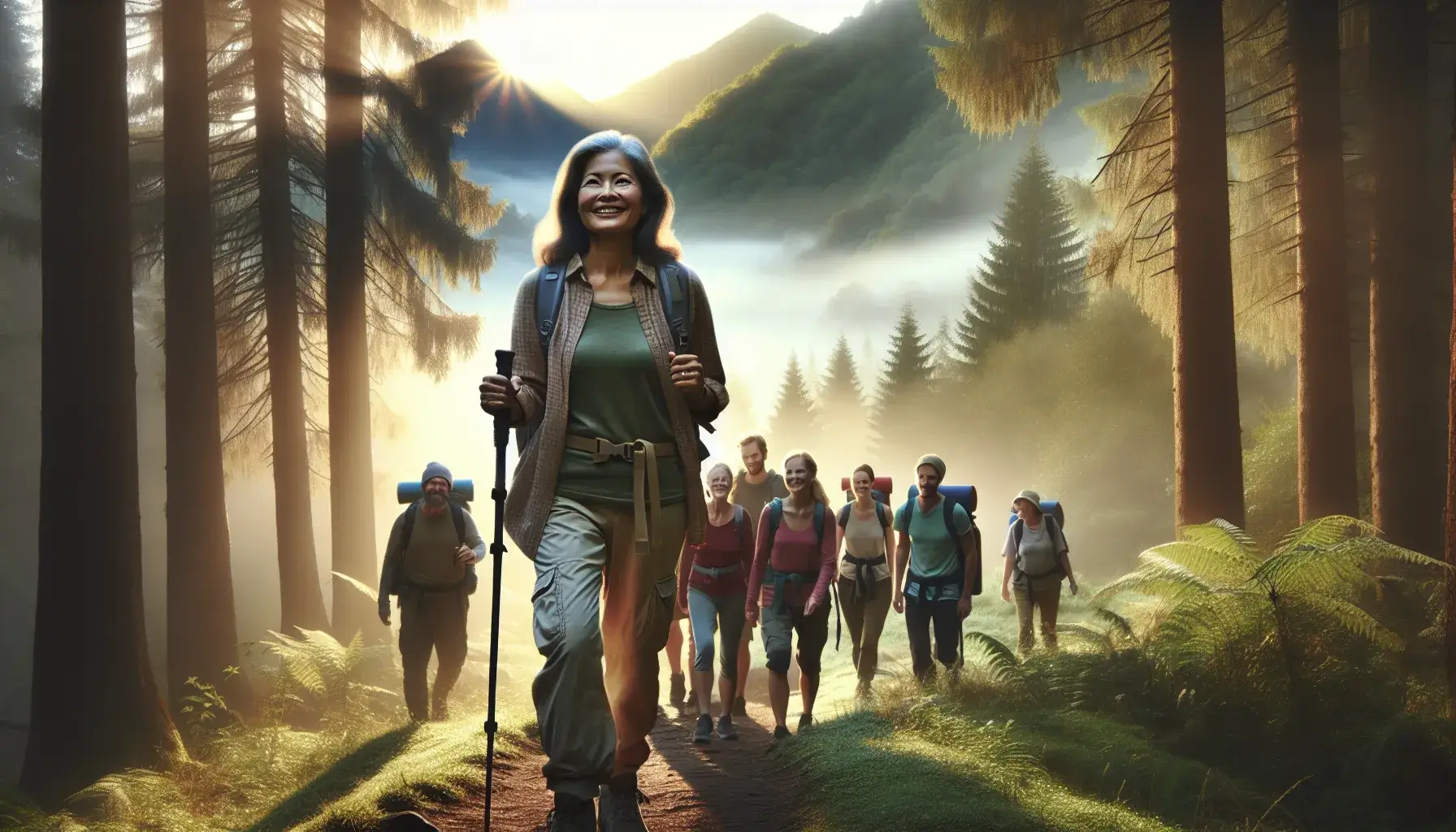For those seeking adventure without the haze of alcohol, planning an alcohol-free backpacking gap year can be a transformative experience. It’s not just about exploring new landscapes; it’s about discovering oneself in the process. With a clear mind, travellers can fully immerse themselves in diverse cultures, forge deeper connections, and create lasting memories.
This guide is designed to help sober adventurers navigate the exciting journey of planning their first alcohol-free gap year. From choosing the right destinations to packing essentials that support a healthy lifestyle, every aspect will be covered. Embracing this lifestyle not only enhances the travel experience but also promotes personal growth and well-being. So, let’s dive into the essentials of making the most out of an alcohol-free backpacking adventure.
Understanding Alcohol-Free Backpacking
Exploring the world without alcohol can lead to a more enriching backpacking experience. Choosing an alcohol-free approach allows for authentic connections, clearer memories, and enhanced health.
Benefits of Going Alcohol-Free
- Improved Health: Sober travel reduces dehydration, fatigue, and alcohol-related illnesses. Staying hydrated and well-nourished supports energy levels.
- Enhanced Clarity: Without alcohol’s influence, mental sharpness increases. Decision-making and navigation become easier, ensuring safety.
- Deeper Connections: Engaging fully with fellow travellers and locals leads to more meaningful relationships. Alcohol-free socialising fosters clarity in interactions.
- Greater Focus: Immersing in culture and nature evokes a richer understanding of surroundings. Travel experiences become more vivid and memorable.
- Financial Savings: Avoiding alcohol-related expenses decreases overall costs, enabling more investment in activities and excursions.
Common Misconceptions
- Fun Is Dependent on Alcohol: Many believe that social fun requires drinking. However, engaging in activities like hiking, exploring, or attending local events offers ample enjoyment.
- Sober Travel Is Lonely: Contrary to popular belief, many backpackers seek alcohol-free experiences. There are numerous sober-friendly hostels and communities, providing support and camaraderie.
- Alcohol-Free Options Are Limited: Numerous destinations now offer non-alcoholic beverages, from mocktails to local teas. Exploring local customs reveals exciting alternatives.
- Sober Travellers Are Boring: Many adventurous travellers embrace alcohol-free lifestyles. Engaging in activities like hiking, yoga, or volunteering showcases diverse ways to experience travel joyfully.
- Alcohol-Free Means Missing Out: Practising sobriety doesn’t limit experiences; it enhances them. Engaging mindfully often leads to richer experiences and personal growth.
Preparing for Your Trip
Preparing for an alcohol-free backpacking gap year involves careful planning. This ensures a rewarding experience that promotes wellness and adventure.
Choosing Your Destinations
Choosing the right destinations enhances the alcohol-free experience. Here are several considerations:
- Cultural richness: Select places known for vibrant cultures, such as Japan, India, or Italy.
- Nature-focused areas: Opt for destinations with outdoor activities, like hiking, biking, or camping, such as New Zealand or Canada.
- Sober-friendly environments: Research locations with thriving non-alcoholic scenes, including cafes, wellness retreats, or festivals in cities like Berlin or Barcelona.
- Cost-effective regions: Prioritise budget-friendly countries, like Vietnam or Portugal, to maximise value while minimising expenses.
Exploring diverse locations fosters personal growth and deepens connections, ensuring a fulfilling journey without alcohol.
Budgeting and Financial Planning
Effective budgeting lays the groundwork for an enjoyable backpacking adventure. Consider the following tips:
- Estimate daily expenses: Calculate accommodation, transport, food, and activities, ensuring plans align with finances.
- Consider local currency: Research exchange rates for destinations to avoid overspending.
- Utilise budgeting apps: Use tools like Trail Wallet or Mint to track expenses in real time.
- Plan for activities: Set aside funds for unique experiences, such as guided tours, classes, or excursions.
- Avoid alcohol-related costs: Exclude potential expenses for alcohol or bar outings, allowing for a more expansive budget for nutritious meals and activities.
A comprehensive budget helps maintain financial stability, enabling a focus on the journey ahead.
Packing Essentials for an Alcohol-Free Journey
Packing effectively is crucial for an alcohol-free backpacking adventure. Appropriate clothing and gear, along with food and hydration supplies, ensure comfort and convenience during the journey.
Clothing and Gear
- Breathable Clothing: Choose moisture-wicking fabrics for versatility and comfort. Lightweight materials can keep the traveller cool and dry.
- Layering Options: Bring layers like thermal tops, fleece jackets, and waterproof shells to adapt to changing weather conditions.
- Comfortable Footwear: Pack sturdy hiking boots or trail shoes that provide support and cushioning for various terrains.
- Essential Accessories: Include a hat for sun protection, a lightweight scarf for warmth, and sunglasses with UV protection.
- Backpack: Select a durable, well-fitted backpack with ample storage and easy access to essentials.
Food and Hydration
- Nutritious Snacks: Pack energy-dense foods such as nuts, dried fruits, and granola bars for convenient boosts during hikes.
- Meals: Opt for dehydrated or freeze-dried meals, ensuring they are nutritious and easy to prepare, requiring only hot water.
- Reusable Water Bottle: Carry a sturdy water bottle and consider a filtration system to access clean water safely.
- Electrolyte Supplements: Bring electrolyte tablets or powders to maintain hydration balance, particularly during strenuous activities.
- Cooking Equipment: Include a compact stove or portable cookware for preparing meals on the go, ensuring all items are lightweight and space-efficient.
Navigating Social Situations
Navigating social situations while backpacking alcohol-free presents unique opportunities to connect meaningfully with others. Engaging in sober-friendly activities fosters new friendships and enhances travel experiences.
Meeting New People
Meeting new people during an alcohol-free gap year occurs naturally in diverse environments. Consider these strategies:
- Join Local Clubs or Groups: Participate in activities such as hiking, photography, or language exchange to bond with fellow travellers.
- Attend Workshops: Enrol in cooking classes, dance lessons, or art workshops to meet individuals with similar interests.
- Volunteer: Engage in local conservation projects or community service opportunities to connect with locals and other backpackers.
Building relationships in these settings encourages connection without reliance on alcohol, showcasing the social nature of travel.
Finding Alcohol-Free Activities
Finding engaging alcohol-free activities enhances the backpacking experience. Explore these options:
- Outdoor Adventures: Try hiking, cycling, zip-lining, or kayaking to embrace nature without alcohol.
- Cultural Experiences: Visit museums, attend local festivals, or take guided tours to delve into the culture of the destination.
- Mindfulness Practices: Participate in yoga or meditation classes to promote relaxation and well-being.
These activities support a fulfilling journey, ensuring enjoyment and connection are not dependent on alcohol consumption.
Staying Healthy and Safe
Prioritising health and safety during an alcohol-free backpacking gap year is crucial. Focusing on mental and emotional wellbeing, along with managing challenges, enhances the overall experience.
Mental and Emotional Wellbeing
Maintaining mental and emotional wellbeing on an alcohol-free journey involves several strategies. Engage in mindfulness practices, such as meditation or yoga, to foster relaxation. Prioritise regular physical activity like hiking or cycling, which boosts mood and reduces stress. Connect with nature, as outdoor environments promote mental clarity. Establish a support network by joining travel communities or sober-friendly groups that share similar values. Keep a journal to document experiences and emotions, reinforcing personal growth and reflection. Adopting a healthy diet rich in fruits, vegetables, and whole grains supports cognitive function and emotional stability. By implementing these methods, travellers can enhance their overall mental health while exploring new environments.
Handling Challenges on Your Journey
Challenges can arise during a backpacking trip, and preparing for them ensures a smoother experience. Plan for potential social situations where alcohol might be present by identifying sober-friendly alternatives in advance. Research local resources for mental health support in case of emotional difficulties. Carry necessary items like a first aid kit, travel insurance, and important documents to address health concerns promptly. Set realistic expectations for travel experiences, understanding not every moment will be perfect. Encourage adaptability by being open to changing plans if situations become overwhelming. Establish coping mechanisms, such as taking breaks in safe spaces or talking with fellow travellers about concerns. By addressing challenges with proactive strategies, alcohol-free backpackers enhance resilience and enjoyment during their journey.
Key Takeaways
- Transformative Experience: An alcohol-free backpacking gap year fosters personal growth through cultural immersion and genuine connections, enhancing the overall travel experience.
- Health Benefits: Travelling sober reduces risks of dehydration and fatigue, promoting better physical well-being and mental clarity, essential for navigating new environments.
- Meaningful Connections: Alcohol-free interactions with locals and fellow travellers enhance relationships, making for deeper and more authentic experiences.
- Financial Advantages: Avoiding alcohol-related expenses allows for a more effective budget, enabling investment in activities and experiences that enrich the trip.
- Sober Activities Abound: There are numerous engaging alcohol-free activities and vibrant communities ready to welcome sober travellers, proving that fun does not rely on alcohol.
- Preparation is Key: Effective planning, from choosing destinations to budgeting and packing essentials, ensures a fulfilling and health-conscious backpacking adventure.
Conclusion
Embarking on an alcohol-free backpacking gap year offers a unique opportunity for personal growth and adventure. By prioritising health and wellness travellers can experience the world in a more vibrant and meaningful way. With careful planning and a focus on enriching activities it’s possible to forge deeper connections and create lasting memories without the influence of alcohol.
This journey not only enhances mental clarity but also fosters a sense of community among like-minded individuals. As more destinations embrace non-alcoholic options the possibilities for exploration are endless. Ultimately an alcohol-free backpacking experience can redefine the way one travels and enrich their life in ways they never imagined.
Frequently Asked Questions
What are the benefits of an alcohol-free backpacking gap year?
An alcohol-free backpacking gap year fosters personal growth, enhances mental clarity, and encourages deeper connections with locals and fellow travellers. It also leads to improved health and financial savings by avoiding alcohol-related expenses, allowing for a more enriching travel experience.
How can I choose the right destinations for alcohol-free backpacking?
Select destinations that offer cultural richness, nature-focused activities, and sober-friendly environments. Consider cost-effectiveness and research places that promote non-alcoholic options and activities to ensure a fulfilling experience.
What should I pack for an alcohol-free backpacking trip?
Pack breathable clothing, comfortable footwear, a reusable water bottle, nutritious snacks, and lightweight cooking equipment. Include essential accessories like hats, sunglasses, and electrolyte supplements to support a healthy lifestyle while travelling.
How can I connect with others while travelling sober?
Engage in sober-friendly activities such as joining local clubs, attending workshops, or volunteering. These opportunities promote meaningful connections without the reliance on alcohol, making it easier to meet like-minded individuals.
Looking for more sober travel inspiration? Find your next adventure on our Homepage.
What are some activities to enjoy while backpacking alcohol-free?
Consider outdoor adventures, cultural experiences, and mindfulness practices as enjoyable activities. Engaging in these pursuits helps enhance your experience and ensures enjoyment and connection without depending on alcohol consumption.
How can I maintain mental health during my trip?
Prioritise wellbeing by incorporating mindfulness practices, regular physical activity, and connecting with nature. Establish a support network and be prepared to proactively manage stressors to enhance your overall travel experience.
What budgeting tips should I follow for an alcohol-free trip?
Estimate daily expenses considering local currency and use budgeting apps. Plan for activities and avoid alcohol-related costs to maintain financial stability. A comprehensive budget allows you to focus on your adventure without monetary stress.
How can I prepare for social situations involving alcohol?
Be proactive by developing strategies to navigate social situations where alcohol is present. Communicate your preferences, propose alcohol-free activities, and surround yourself with supportive individuals to foster a positive experience while travelling.

Quit drinking on 23 July 2021 after a two-day bender and swapped bars for border crossings and 12-step meetings. Three sober years, 36 countries, 113 travellers (totally dry), fuelled by street food, jelly babies, and a broken Google Maps app. Wandersober is my journal, my SEO lab, and my mission. Featured in GQ, Mirror, Evening Standard, MarketWatch, and more.






